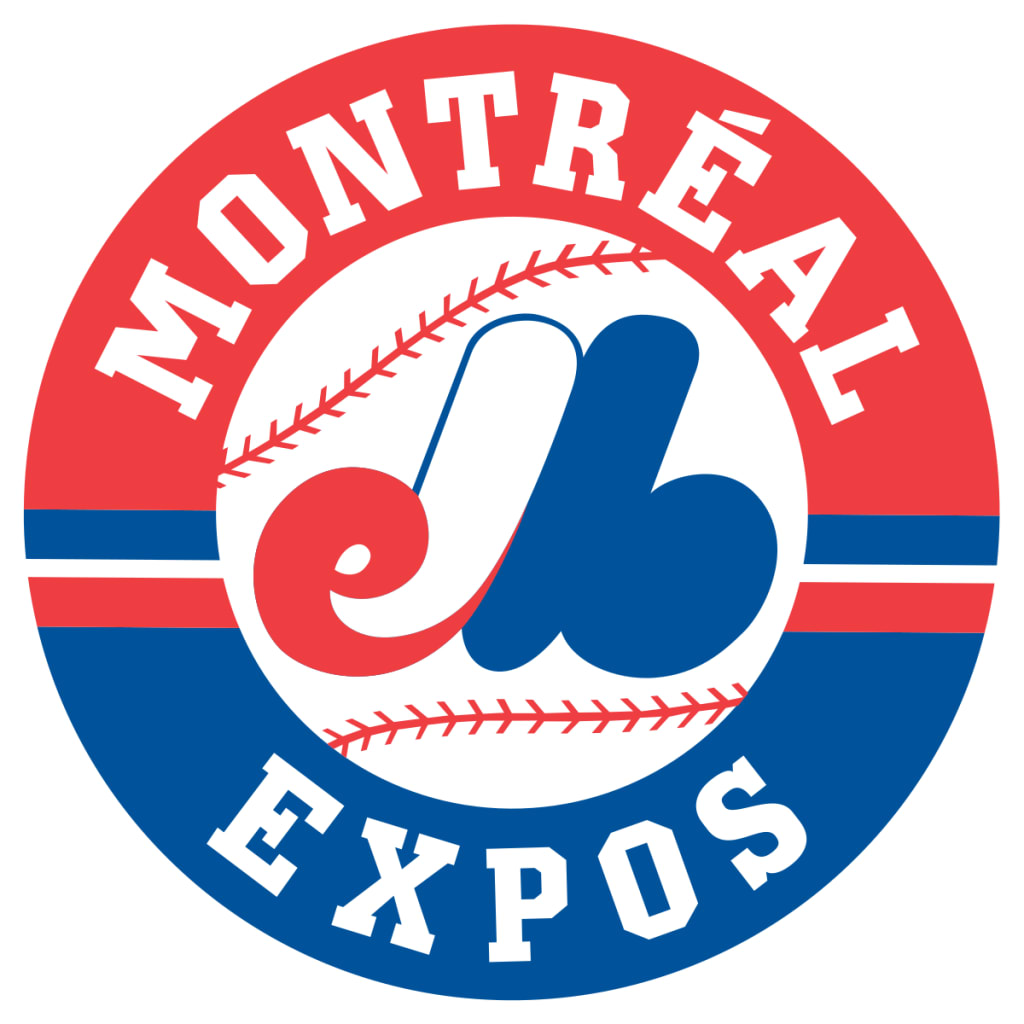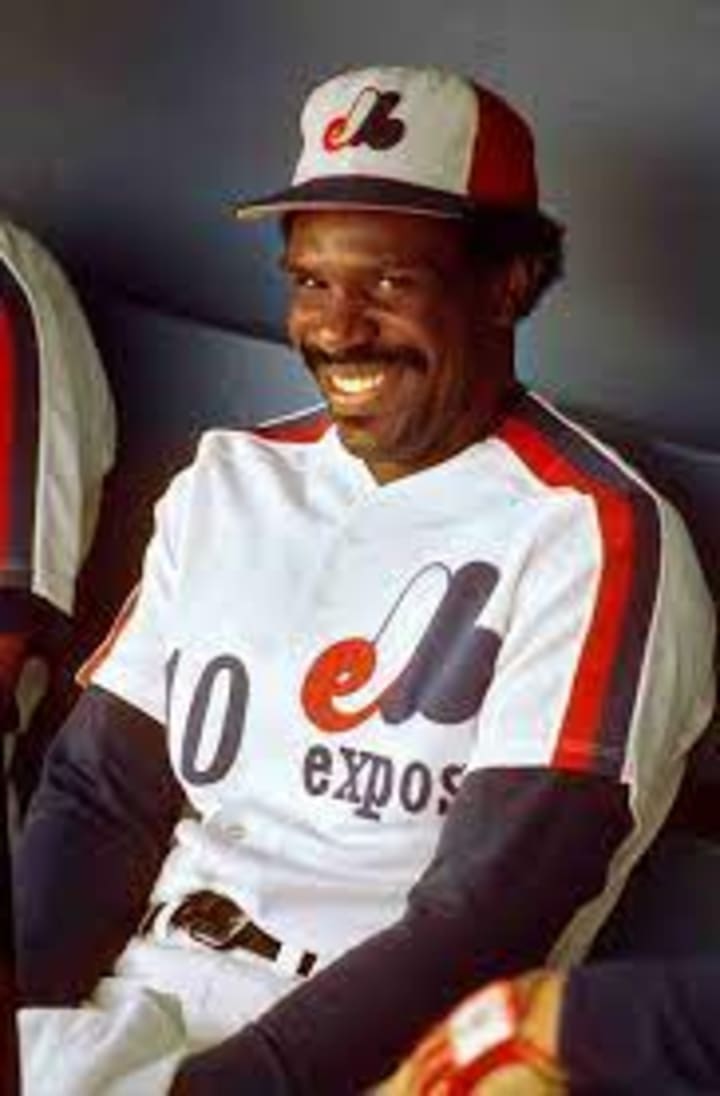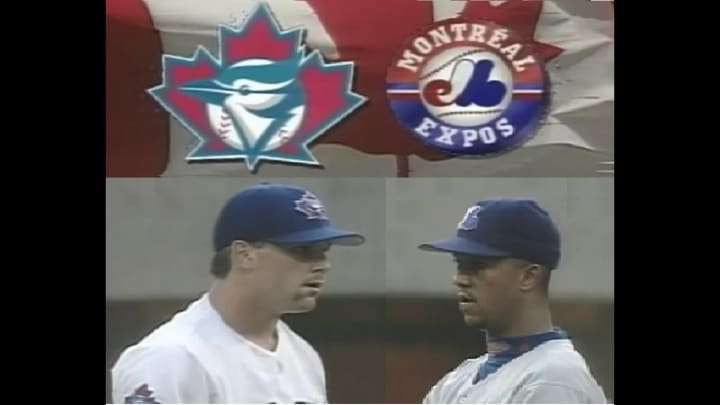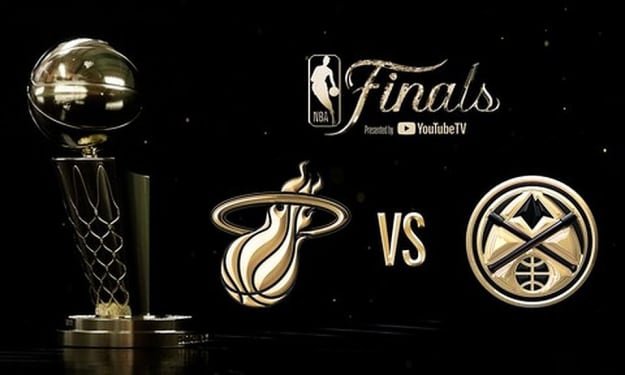The Turbulent History of the Montréal Expos
The Montréal Expos made history as Canada's first MLB franchise, but the positives after that were few and far in between

Some time ago, I wrote a story detailing the history of the NHL's Quebec Nordiques, who were part of the 1979 NHL-WHA merger and played for 16 seasons in the NHL before moving to Denver. The Nordiques were a hard luck team, but they did have a few moments. The same cannot be said about Quebec's other relocated major team. I've been fascinated with this team for quite a while, and oddly, the fascination increased after they relocated. Could they be back in some form? Who knows? Right now, it's time to tell the tale of one of the most extraordinarily hard luck teams in sports: the Montréal Expos.
The 1960s saw expansion all over sports, and Major League Baseball was no exception. It wasn't just expansion, it was also relocation, as teams were moving as early as the 1950s. The most notable move came in 1958, as the Brooklyn Dodgers and the New York Giants both moved to Los Angeles and San Francisco, respectively. The 1960s saw the Washington Senators move to Minneapolis and become the Minnesota Twins, though teams were also placed in cities such as Queens, Anaheim, Oakland, Atlanta, and a second Senators team in DC. In 1969, MLB added four more franchises, two in each league, yet one of them was placed in quite an interesting location: Canada. To be more specific: Montréal.
Yes (or should I say "oui"), the largest and most prominent French-speaking city in Canada was getting America's pastime, as the Montréal Expos made their debut in 1969. This was the same year that MLB actually divided the American and National Leagues into two divisions, East and West, thus marking the official birth of Divisional Play. The Expos were placed in the newly formed National League East along with the Philadelphia Phillies, the Chicago Cubs, the New York Mets, the St. Louis Cardinals, and the Pittsburgh Pirates.
The team's debut season saw them lose 110 games, and their following years weren't any better. Their entire first decade of play saw them in the bottom half of the division, always with a losing record. The Expos' highest win total during that stretch was 79, which they achieved in 1973 and 1974, though the former year saw them finish 3.5 games out in a very mediocre NL East. The Expos' first winning season came in 1979, a 95-65 campaign that saw them finish in second place behind the eventual World Champions, the Pittsburgh Pirates (only the division winners qualified for the playoffs back then). They were a bit closer in 1980, winning 90 games and finishing only one game behind that year's eventual World Champions, the Philadelphia Phillies.
And then...there's 1981.

1981 was a strange season. A brief work stoppage ended up splitting the season into two halves, and it resulted in different 1st place teams in each of the four divisions. Regarding the NL East, the Expos were third in the division before the stoppage, but once the league returned to play, the Expos went 30-23 in the second half and actually finished in first place. The leader during that season was Andre Dawson, who began his career in 1976 with the Expos, and hit 24 home runs that year, which led the team. The legendary Gary Carter actually led the team in RBIs with 68, and Dawson was one of three .300 hitters that year, the other two were Warren Cromartie and a name still respected in Montréal: Tim "Rock" Raines.
For that year only, the first half division winners faced the second half division winners in what was known as the Division Series, which was best-of-five, similar to the League Championship Series' format at that time. In the NL East, it was the Expos against the defending champion Phillies, and in the makeshift Division Series, the Expos defeated the Phillies in five games to enter the National League Championship Series as the undisputed champions of the NL East. The Expos, in their 13th season, were in the postseason for the first time, and also marked the first time that MLB postseason games were played outside the United States.
In the NLCS, they faced off against the Los Angeles Dodgers, who were champions of the NL West and were three years removed from their last pennant. The Expos could not solve Burt Hooton in Game One, but Game Two saw Ray Burris actually out-duel the great Fernando Valenzuela to even the series. After two games in LA's Dodger Stadium, the remainder of the NLCS would be played in Montréal's Olympic Stadium, and Game Three saw the Expos move one win away from the World Series thanks to the stellar pitching of Steve Rogers. Game Four was another Burt Hooton masterpiece that ended up forcing a deciding Game Five, which was tied at 1 entering the ninth inning. On two days' rest, Rogers was brought into pitch the ninth, and it resulted in this:
There were two outs in the ninth, but Rogers' 3-1 pitch to Rick Monday ended up going into the seats. A solo shot that gave the Dodgers a 2-1 lead. The Expos threatened in the bottom half with two walks against Valenzuela, but Bob Welch shut the door. The final score in Game Five: Dodgers 2, Expos 1. The afternoon of Monday, October 19, 1981 would forever be known as "Blue Monday," with Dave Van Horne (the Expos' play-by-play announcer) referring to the moment as "the lowest in the team's history."
Normally, when a team has a breakout season, they build off it and go on more runs. This, sadly, did not happen with the Expos. The next several seasons saw the team finish way out of the division lead, including a 5th place finish in 1984, just three years after nearly winning the pennant! A 91-win 1987 season was followed by back-to-back seasons at .500 even, but the beginning of the 1990s saw the Expos start to rise up as a big time contender, with All-Star players such as Cliff Floyd, Marquis Grissom, and Moises Alou, whose father, Felipe Alou, was the manager. 1994 was their best chance, they were on a huge tear, and it looked like they would actually go on to actually win the World Series, which would be Canada's third straight, as the Toronto Blue Jays won in 1992 and 1993.
And then...the strike happened.
To this very day, the aftermath of that 1994 season that wasn't remains a sore subject in Montréal. The team actually went on a fire sale, getting rid of every player of worth during that long offseason. As a result, the Expos finished dead last in the five-team NL East, and never regained that form they had in 1994. In their final decade, the team only finished in second place twice, doing so in 1996 and 2002--the latter year seeing them as one of a few teams that were subjected to rumors of contraction. During this period, attendance plummeted big time, to the point where they actually resorted to playing their home games in Puerto Rico during their final two years.
In addition, Expos fans had to watch their former stars actually win elsewhere. Marquis Grissom ended up going to the Atlanta Braves, and actually won a World Series in 1995 and would help turn the Braves into a perennial powerhouse. Tim Raines would go on to win a World Series with the New York Yankees, as did John Wetteland, who was the Yankees' closer before some guy named Mariano Rivera took over that role. As for the Expos, 2002 and 2003 would mark their final winning seasons, and their final season in 2004 would see them go 67-95.
The Expos moved to Washington, DC and became the Washington Nationals, marking the American capital city's third attempt at a MLB franchise. The team wouldn't return to the postseason until 2012, and would have to wait until 2019 to actually win a pennant, becoming the last National League franchise to win their first pennant. The Nationals defeated the Houston Astros in seven games to win their first World Championship in franchise history. I'm dead serious, when that last out was made, I actually said, "The Montréal Expos won the World Series!" Because, technically, that's what happened.

Eight years after the Expos debuted in MLB, the aforementioned Toronto Blue Jays began play in 1977, serving as the American League's Canadian franchise. Of course, the two teams would never face each other until Interleague Play was instilled in in 1997, allowing the Canadian clubs to finally face each other during the regular season. The first game took place on June 30, 1997 in Toronto, with the Expos winning 2-1. Expos/Jays was one of the many regular rivalries that took place during Interleague Play, and it existed for the last eight seasons of the Expos' existence. The Jays won the overall series 24-19.
The Expos were definitely a team with a lot of promise, but something always got in their way. Because of the strike in 1994, the 1981 season remains their only shining moment in 36 seasons in Montréal, and even that ended in heartbreak. I've heard rumors for several years that MLB may return to Montréal, most likely an expansion team. It would be interesting to see if that comes to pass, especially because I think Montréal deserves a second chance at baseball. If it happens, it would be amazing. If not, well, at least there's the memories.
About the Creator
Reader insights
Outstanding
Excellent work. Looking forward to reading more!
Top insight
Expert insights and opinions
Arguments were carefully researched and presented






Comments (2)
As always excellent informative writing
This was a great sport history FYI. Why in1994 would a team want to sabotage itself and great rid of its good players?